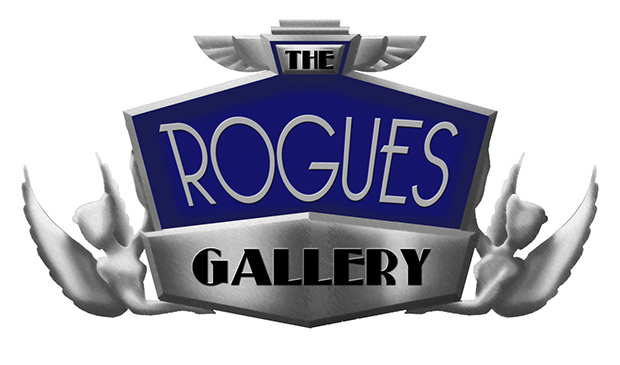The Art of the Appraisal

‘The Picture of Dorian Gray’ by Oscar Wilde is the first grown-up book I fell in love with. For those who aren’t familiar it is a lush and louche tale about a deal with the devil. Dorian sells his soul for a portrait; not just any portrait of course but one that immortalises dear twisted Dorian by absorbing all his ageing and a fair bit of associated naughtiness. Not surprisingly, bereft of consequences he really pushes the boat out and things go awry. While the majesty of the prose captivated me; a fireworks display held in the palm of my hand, the underlying message of temptations, morality and consequences has lingered with me to this day. In modern parlance we might refer to them as ‘Key Performance Indicators’ (KPIs).
An appraisal can be like painting a portrait for someone. Portraits can be flattering or not, but the best ones show whether you have been making an honest effort recently. I have had a few great appraisals which I left feeling invigorated and newly focused and a lot of mediocre appraisals, basically with me being told whether I was receiving a bonus, pay-rise, promotion or not. I have also had one or two appraisals that I entered like a happy puppy, thinking I had worked hard and would receive a pat on the head and bank balance. Then time spun forward to me leaving that meeting with a face like that guy in Edvard Munch’s famous painting ‘The Scream’; the word ‘Whhaaatt?! bouncing around in my nonce. Given that I do have a particularly thick nonce (on a good day I like to say that I am ‘focused’) I guess that I should be grateful to those people. It is to their credit that I am now super careful with the appraisals that I have to do. I don’t want anyone leaving one that I have given with a face like that. I paint carefully and I am continually learning better technique.
But prepping always comes first, and prepping for the next appraisal starts straight after the current one. I note how people have responded to my feedback and adjust my thinking and goals for them accordingly. If I am worth my salt as a manager, then I should have a bigger picture and every single person that works for or with me should fit (tightly or loosely) into that. I am deeply committed to the contentedness and focus of the people working for me and believe, if you hire the right people, you should never have to micro-manage (hiss.. bad word). Little, light and constant brush strokes create the most detailed pictures.
Tone and environment are important on your canvas. I like to gently check-in with peoples’ progress and the team mood on a regular basis. A coffee in hand chat on the way past their desk is a good tone to strike. Informal and clearly intended to be brief. We all have our schtick and, depending on the mood, (clearly if someone has had a bereavement then a different tone is advised) but lighthearted phrases like ‘Anybody’s world blow up today?’ or ‘Anything fabulous I should know about?’ are go-to’s for me. This opens a door for conversation without pressuring anyone. If someone’s face falls, then this is probably a time for a more direct question or, if they aren’t keen to chat in public, an excuse for you to need someone’s help picking something up from the cafe. I generally feel that chats in offices with doors closed are only for the serious stuff. Guys tend to be a bit stickier with the chat but a door open policy is a good one..
Obviously, if your department is set up properly, then KPIs that you go through in an appraisal should serve the ‘Big Picture’ of your firm (regulators really like to see this on their inspections too). So, in the run-up to the appraisal, it is useful to gently remind people about (even offer to help with) the progress to their KPIs, especially if you feel that they might be lagging.
Obviously Sod’s Law is a fundamental power in the universe and things generally don’t go to plan. So, once you are actually in the meeting, and if you have prepped on your expectations going in, then you should give them some room to talk first with a phrase like ‘So, before we get into the points is there anything you feel I should know?’. I have spoken at length about the need for compassionate listening. Basically they should understand that you care (if you are a miserable, hardhearted sod then fake it till you make it); they should feel that they can trust you, that you are focused, fair and fundamentally positive about their abilities, even if they are at a lull (we can leave firing stuff for another chat).
There is of course the issue of intentions and consequences. In a happy world they have sparkled every day that they have come in the door and, if you are a grown-up then you will be big enough to say so. As someone who believes in constructive competitiveness, I find it strange that so many managers and coaches I know seem to take real pleasure in finding things wrong with good people, so they can ‘put them in their place’ or some other nonsense. I do not agree with this approach. Be nice, be constructive or talk to someone about why you need to take others down. If you are the manager, then you should be the grown-up. Give them carrots, give them stretch goals, let them fly. Yes, even if they are better than you. Be proud of the contribution that you’ve hopefully made to their success.
On the other end is the constantly under-performing member of the team. We have to do what we can to help (especially if we hired them ourselves). Sometimes it is just a case of people being in the wrong place and a better place can be found for them. I have done this on occasion. But, if consistent and concerted efforts don’t bring that person up to speed then a door must be compassionately (if at all possible) found. At the end of the day you are the gatekeeper for the performance of the team.
Now, I have managed a few regional teams and it was important for me, given our complex situation across the region, that my staff knew I had their backs when things went wrong, especially if they had done everything right but the situation had gone wrong. If they had done something really meat-headed then we would definitely be having a quiet chat about that. Never take a knife to them in public, even if they have done something really dodgy. If you have to say anything to the world-at-large then say that you are dealing with it and release them from their obligations quietly and away from the light. At the heart of it, of course, most people appreciate not being outed but I just think that, whatever the environment, people need to be shown respect. A simple concept that often gets lost in the heat of argument and ambition.
Overall, one of the better management days that I had was a comment one of my staff members made as she left my office following her appraisal. I had asked if she was happy with it, she replied simply ‘Of course, there are never any surprises with you’. I was deeply pleased by this comment. I have always worked hard to make sure that my staff knew me, they knew that I would do my best for them, that I wanted them to push themselves and achieve their potential (yes, even if theirs exceeded mine). I aspire every day to paint well.







